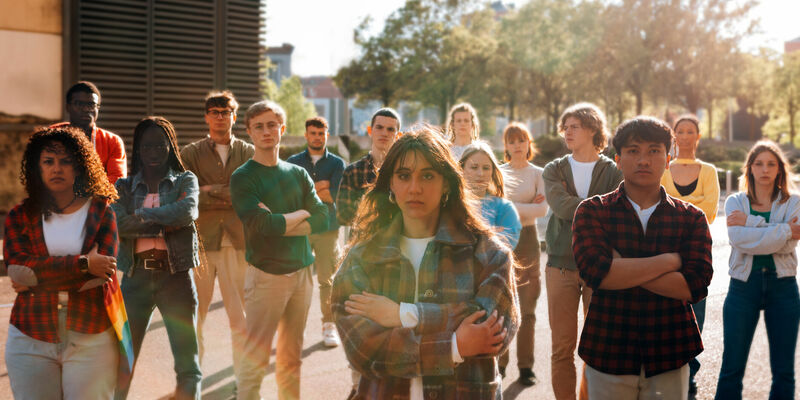
- Student
- 11/01/2024
Will students speak with PVV education minister or not?
There is a possibility that the next education minister will be from the PVV. The coming year is anticipated to be particularly interesting, according to the presidents of student organisations ISO and LSVb, both of whom are seeking individuals to take over their roles.
There are two national advocacy organisations for students in the Netherlands: the Dutch National Student Association (Interstedelijk Studenten Overleg, ‘ISO’) and the Dutch Student Union (Landelijke Studentenvakbond, ‘LSVb’). They take part in discussions with the education minister, demonstrate on Malieveld or lobby political parties.
ISO has its roots in participation councils, while LSVb is an activist organisation that originated from local student unions. Each has a different approach, say union presidents Demi Janssen (ISO) and Elisa Weehuizen (LSVb).
PVV minister
That much is clear. The next education minister could be from the PVV, something which is likely to have major implications for the direction of higher education. Will it then be ‘business as usual’ during consultations or will students dig in their heels?
ISO will definitely maintain a dialogue, says president Demi Janssen. “We realise that this election result has sparked significant reactions among students. They can expect us to continue our unwavering commitment to represent the interests of every student. For that, we need to engage with all political parties, precisely to effectively convey our ideas and persuade them of their merits. ISO will always continue to advocate for accessible and quality education allied to an educational environment which fosters support for every student.”
LSVb takes a different line. “If the next education minister does come from the PVV, we will not engage in dialogue with them. That may sound harsh, but we must remain consistent in our stance against racism and discrimination. If a political party with a history of expressing overly racist views takes power then that’s where we draw the line. I should add that this is the policy of our current board. The next board can make its own judgements and decide for themselves.”
Open for applications
Both organisations are currently looking for new board members. They are holding a series of information evenings (ISO and LSVb) and planning coffee dates. Potential candidates have until 26 January (LSVb) or 31 January (ISO) to apply. The new presidents are generally elected in April. After they have been through their induction, they will assume their full duties before the summer holidays.
Janssen and Weehuizen had barely started in their positions when the government fell. Both had expected a different committee year. Janssen says: “Neither of us had much time to get our feet under the table during the summer – it was nose to grindstone straight away.”
It was an experience neither would have wanted to miss. “It’s really cool to suddenly find yourself a participant in national politics yourself”, says Weehuizen. “Being in direct dialogue with Education Minister Robbert Dijkgraaf, for example, enables us to articulate our viewpoints effectively. At the same time, it can also feel like a huge responsibility, because you are representing 800,000 students and, of course, you really want to do your absolute best for them.”
Effective organisations
The student organisations are keen to emphasize that they also achieve things, such as the protests against rising interest rates on student debt. “We often hear from students that they appreciate that someone is organising these protests”, says Weehuizen. It led to a motion in the House of Representatives that will lower interest rates at least for the students who missed out on the chance of a basic student grant under the student loan system. “That will ease the financial strain on students.”
Among other things, ISO points to the fight for reasonable internship fees, which political parties are increasingly paying attention to. “They increasingly understand that students struggle to make ends meet, especially when they don’t get much support from home. It’s cool to see parties include that in their election manifestos. The same also applies to student welfare, for example, which is something we are committed to.”
Internationalisation
Their successors will have a busy agenda. Internationalisation in particular is likely to be a hot topic. Janssen and Weehuizen understand the problems of accessibility to education and housing for students, but still do not oppose the arrival of foreign students.
Janssen says: “I kind of dislike this expression, but you shouldn’t throw the baby out with the bathwater." Weehuizen concurs: “It’s important to make good agreements and find the right balance.”
Discussion